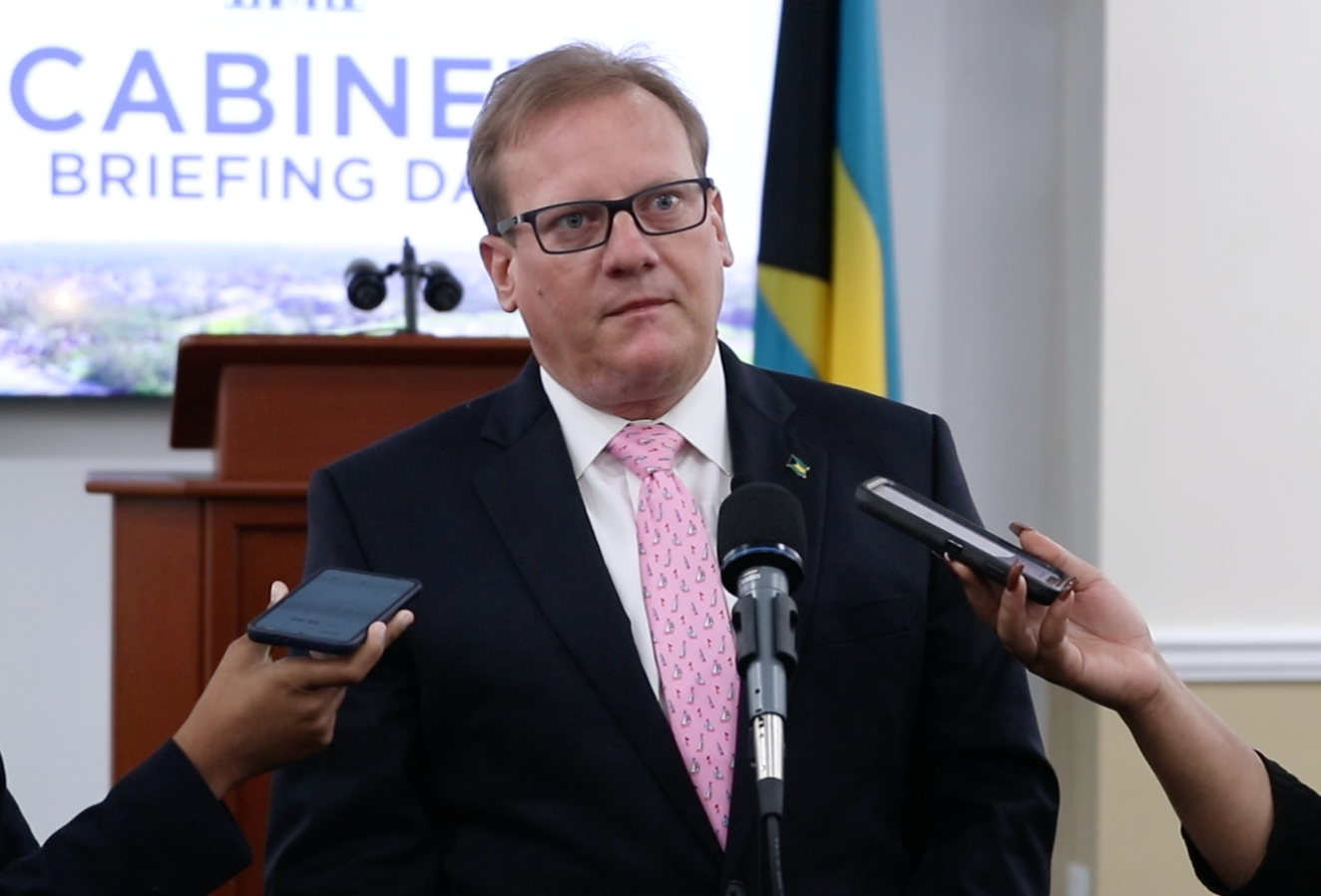NASSAU, BAHAMAS – Attorney General Ryan Pinder yesterday called into question the purpose of the European Union’s “blacklists”, suggesting that they have lacked objectivity and fairness and have at times devastated the economies of small developing states in this region.
Pinder made the comments at the Central Bank’s 4th AML Research Conference at the Margaritaville Resort.
“What is the true cost-benefit analysis for countries such as mine to arbitrary and unilateral blacklists?” he said.
“What does it achieve? We all strive to be compliant, the world economy dictates we must be to participate. So, assuming that, what is the utility of blacklists in light of the extraordinary economic damage it implores on us small developing countries.
Pinder continued: “We make up the vast majority of blacklisted countries, former colonies of European imperialists. Of the 65 jurisdictions gray-listed or blacklisted by FATF from 2010 to 2020, none are in the Group of 7 industrialized nations while only two, Argentina and Turkey, are in the Group of 20.
“The vast majority hail from the Global South, and 28 rank in the bottom half of economic output as measured by GDP. We must look at this much closer and have objective research demonstrate the point that blacklists have lacked objectivity and fairness and have devastated at times economies of small developing states in our hemisphere with questionable global benefit.”
According to Pinder, following the release of the Paradise Papers back in 2017, the EU’s code of conduct group blacklisted 17 countries.
“Not one European country was listed; they all got a free pass. In February 2019, the EU published an updated version of their AML/CFT list. Again, not a single European country was listed. In 2022, the EU identified jurisdictions with strategic deficiencies in their AML/CFT regimes that pose significant threats to the financial system. Why is not a single EU member country or their most influential trading partners listed?
“Again, I suggest a research study of these arbitrary actions and the cost/benefit analysis. I know that a paper was prepared last year that discusses this discrimination, we should take it further and assess the damage done to our countries versus the global benefit achieved. I suspect I know where that analysis will fall,” said Pinder.
Pinder also challenged the Financial Action Task Force (FATF) to reaffirm its position as the sole global money laundering and terrorist financing watchdog and not allow its standards to be supplanted by “rogue organizations.”
“For AML/CFT/CFP purposes, the FATF is the recognized body internationally that sets the standards for every country to comply with. I can speak first hand, the requirements are robust, the obligations on countries are significant and we like other countries do what we need to do to comply at the fullest levels,” he said.
“A challenge arises when other institutions, organizations or multilateral bodies try to represent themselves as international standard-setting bodies, prescribing standards that are different from those of the recognized bodies. I implore institutions like the FATF, to reaffirm yourself as the only standard-setting body and do not let others in certain instances rogue organizations supplant your standards,” Pinder said.
The attorney general noted that over the last seven years, The Bahamas has placed tremendous efforts towards addressing strategic AML/CFT/CFP deficiencies; noting that progress was made each year with the introduction of enhanced legislation and attendant regulations.
“These efforts and supporting evidence were assessed by CFATF and FATF International Cooperation Review Group, leading to The Bahamas being delisted from the FATF Grey List on December 18th 2020,” he said.
“This was followed up with the significant achievement obtained on December 22nd 2022 with the publication of the Bahamas’ CFATF Follow-up report announcing that the country had obtained compliant or largely compliant ratings with 40 of the 40 FATF Recommendations. The Bahamas became the 2nd jurisdiction in the Caribbean and the Americas to attain such a position and only the 6th in the FATF’s Global Network of 206 jurisdictions,” said Pinder.
Pinder noted that only one European country has achieved this perfect rating under FATF standards, despite the misconceptions that originate from that part of the world of countries such as The Bahamas.
“Notwithstanding the noted achievements, The Bahamas while attending and tackling the FATF/CFATF matters, was also urgently addressing matters with the European Union’s Director General of Financial Stability, Financial Services and Capital Markets Union regarding the country’s AML Blacklisting. Our efforts paid off as the country was delisted from the EU’s AML Blacklisting on the 7th January 2022,” Pinder added.






